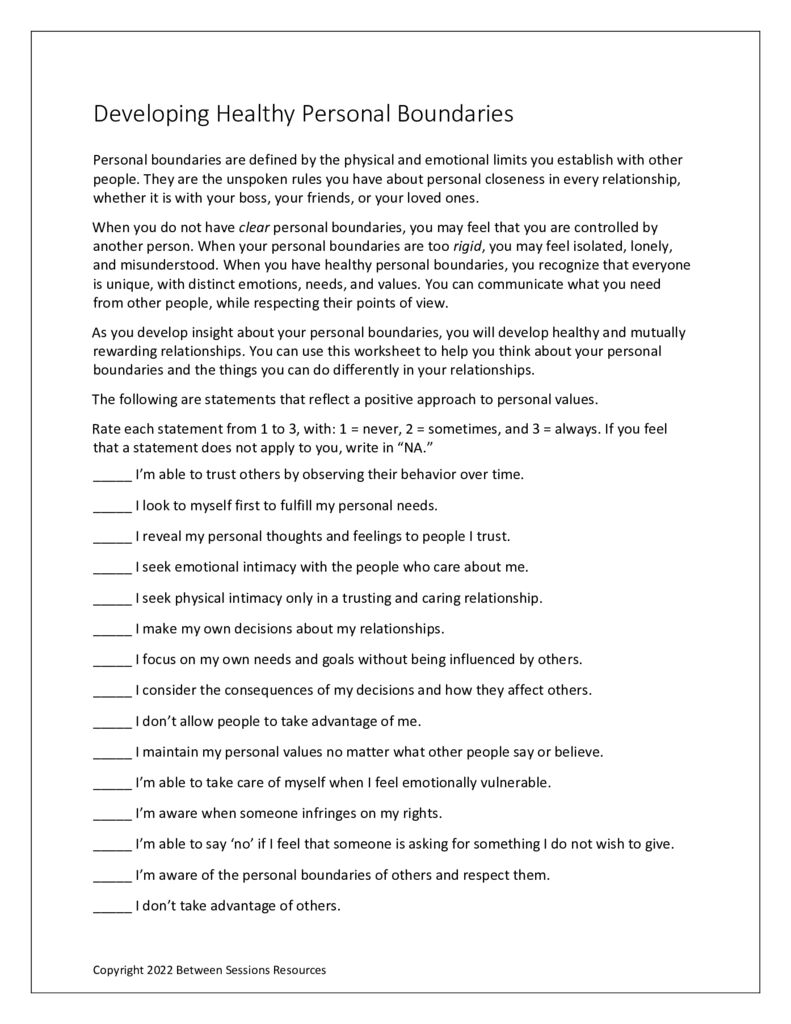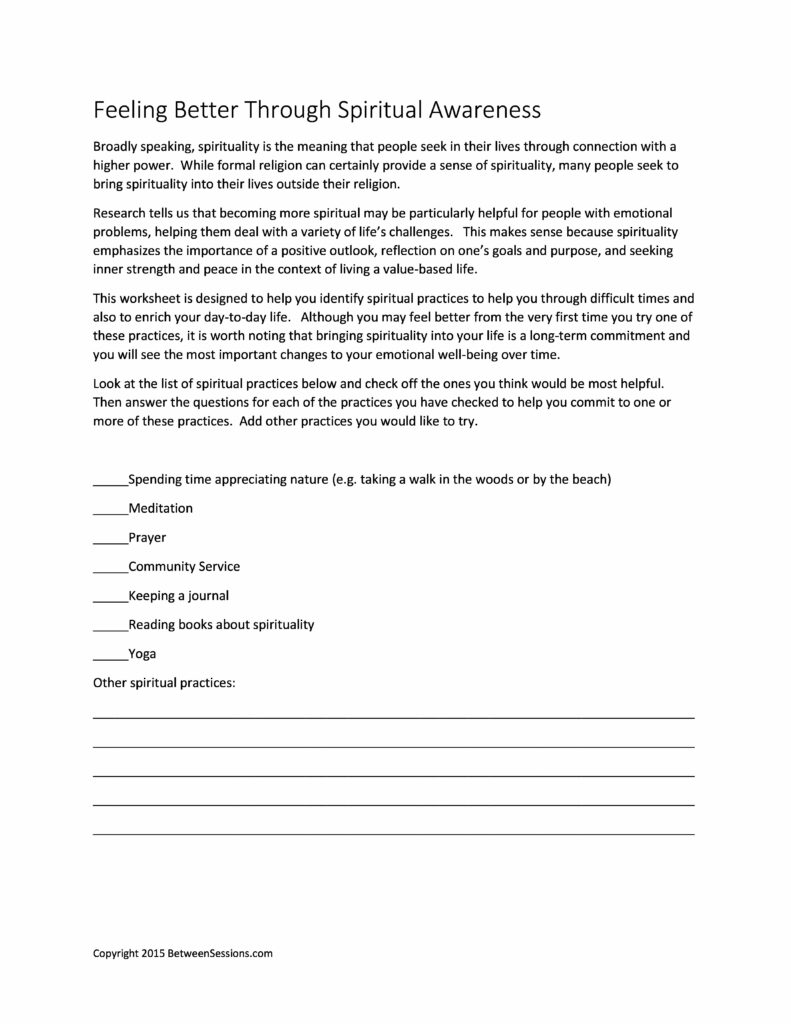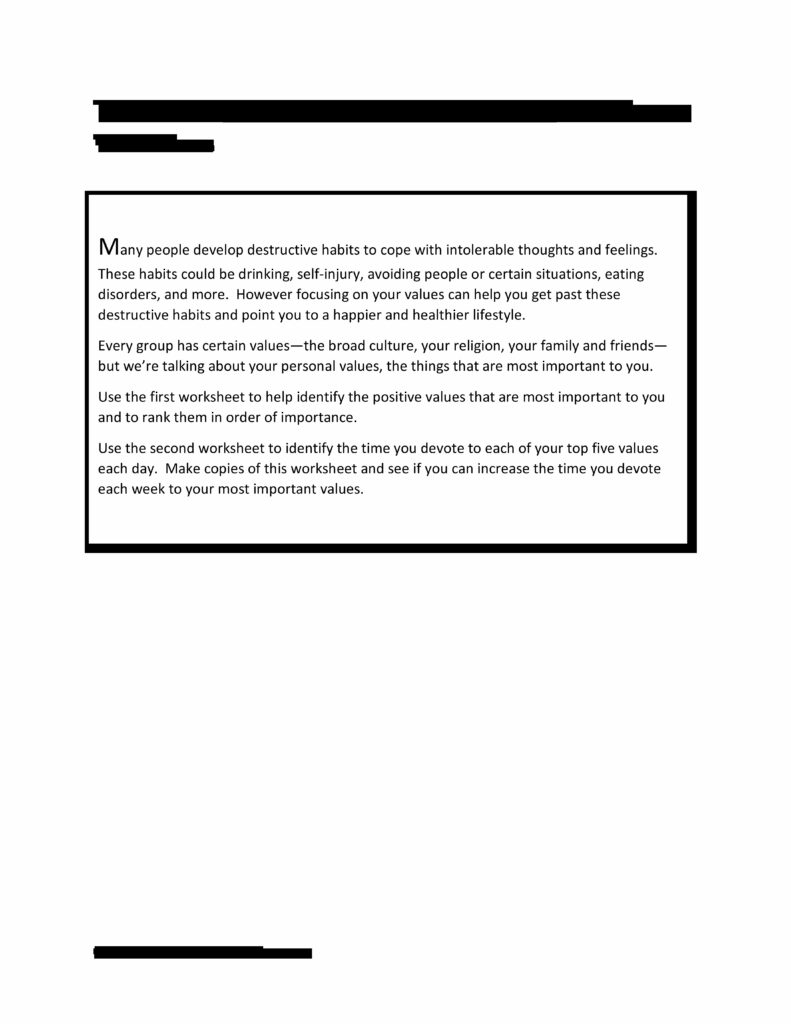Teens have a special way of communicating and learning about themselves, so we’ve made sure that all our therapeutic activities for teens are appealing and engaging to this age group.
To modify the tools, click the ‘Send to Client’ button by each tool to open the Psychology Forms Filler. You can then edit the tool as you see fit and either print it out or send it to a client to be filled out online. Click here for a tutorial on using the Psychology Forms Filler.
We’ve tried to address every teen issue we can think of, and more tools are added every week!
If you are looking for something you can’t find on this site, please let us know by clicking here and our team of writers, graphic artists, and therapists will custom-design it for you.
When you have clients who are suicidal, you naturally want to make sure that you are doing everything you can to insure their safety. This checklist is designed to remind therapists of the critical steps to think about for these clients. Form Type: PDF
This worksheet is designed to help people develop healthy boundaries in their relationships. Clients rate themselves on positive behaviors related to their personal boundaries, and they are then asked to consider one problem area to work on. (boundaries, relationships, 1222)
This form can be used to assess specific risk factors in clients who have talked about suicide. Form Type: PDF (0515)
This worksheet is designed to help individuals who wish to bring spirituality into their lives as a way to help them with emotional problems and enrich their day-to-day lives. (spirituality, 0515)
This worksheet asks people to rate the intensity of their fears and worries as well the intensity of their urge to avoid what is causing their anxiety. (0415, CBT)
This worksheet is designed to help people think about their emotional strengths and how they can bring these strengths to their current problems. It contains a list of strengths for clients to rate, as well as questions about how significant others perceive the person’s emotional strengths. (0415, ACT, DBT)
Some people spend a lifetime trying to avoid the things that cause upsetting thoughts, feelings, sensations, or memories. This can help them manage their symptoms, but it can simultaneously lead to a very restricted and unhappy life. This worksheet is designed to help people identify the things that upset them, think about the things they do to avoid being upset, and think about what life would be like if they could overcome their symptoms. This worksheet can be used as a prelude to Mindfulness and other techniques that help people accept and overcome their symptomatic behaviors. (CBT, DBT, 0415).
This worksheet is designed for people who blame themselves as solely responsible for a particular situation or event. The form is intended to help relieve the shame and guilt that makes life unbearable. (CBT, shame, guilt, 0415)
Many people don’t realize the potentially harmful effects of drinking alcohol when taking common medications. This is a particular concern for the estimated 3 out of 10 people who consume alcohol in excess. This handout from the National Institute of Alcohol Abuse and Alcoholism details common problems caused by the interaction of alcohol with both over-the-counter and prescription medication. Form Type: PDF (0415)
This worksheet helps people deal with difficult thoughts and feelings by having them focus on their core values rather than rely on self-destructive symptoms. There are two forms to complete, one to help people identify their core values and another to help them determine how much time they spend in activities that reflect these values. (0415, ACT)









